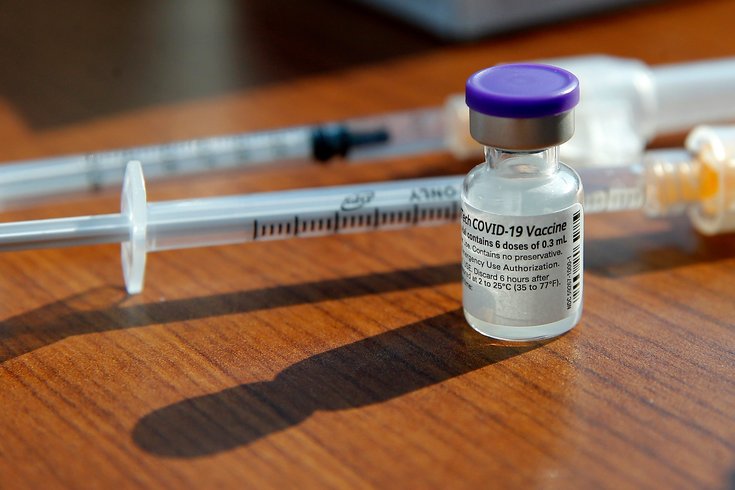
February 15, 2024
 BRYAN TERRY/THE OKLAHOMAN
BRYAN TERRY/THE OKLAHOMAN
New research shows that women who get vaccinated against COVID-19 during pregnancy provide at least six months of protection against the coronavirus for their babies.
Women who are vaccinated against COVID-19 during pregnancy provide their infants with protection against the coronavirus for at least six months after birth – the point when babies are eligible to get vaccinated themselves, new research shows.
No COVID-19 vaccine for infants under 6 months currently exists, making that population particularly vulnerable. But researchers have found that women who received mRNA-based COVID vaccinations or boosters during pregnancy provide enough protection to bridge that gap.
During an earlier leg of the study by the National Institute of Allergy and Infectious Diseases, pregnant volunteers were vaccinated against COVID. Antibodies induced by the vaccine could be found in their infants' cord blood, suggesting that they had some protection against the virus – but researchers did not know how much or for how long.
The new results, published in the journal of the American Academy of Pediatrics, reinforce the importance of getting vaccinated during pregnancy and may be comforting to families who employ outside caregivers or use daycare for their newborns and young infants.
Researchers analyzed data from 475 infants born while their pregnant mothers were enrolled in a COVID-19 vaccine study. The babies were evaluated at least once during their first six months of life, and parents reported whether their infants became infected with COVID-19 or developed symptoms.
The infants of mothers who received two COVID vaccine doses had a "robust antibody response at birth," while those born to mothers who had received an additional booster dose during pregnancy had higher levels of antibodies at birth and even more protection from COVID at follow-up visits. None of the infants involved in the study were hospitalized for COVID.
Researchers will continue to evaluate data from this study to glean further insights into COVID in infants.
The U.S. Centers for Disease Control and Prevention updated its guidelines in 2022 to recommend that children 6 months to 5 years old should receive COVID vaccines, but that still excluded newborns and young infants.
The National Institute of Allergy and Infectious Diseases is part of the National Institutes of Health.